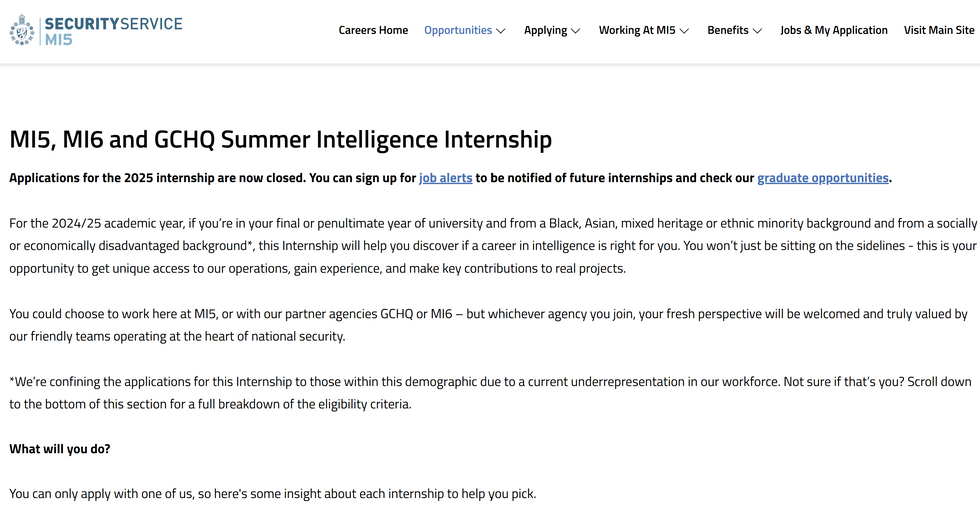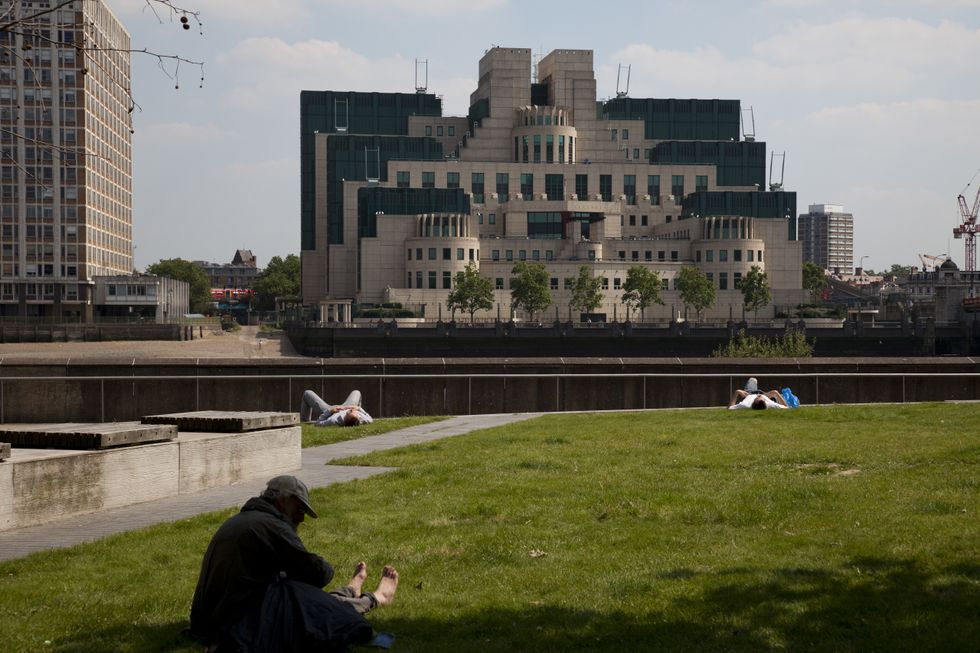Britain’s intelligence agencies have sparked controversy by launching a summer internship programme that excludes white British students from applying.
The paid internship scheme, offered by MI5, MI6 and GCHQ, is exclusively open to students from Black, Asian, mixed heritage or ethnic minority backgrounds, as well as those from socially disadvantaged circumstances.
The intelligence services say the restriction is due to “current underrepresentation in our workforce.”
While the programme welcomes applications from “white other” groups, including Romany Gypsy and Scottish or Irish Travellers, white British candidates are not eligible, even if they come from deprived backgrounds.

While the programme welcomes applications from “white other” groups, including Romany Gypsy and Scottish or Irish Travellers, white British candidates are not eligible, even if they come from deprived backgrounds
MI5
The internship – spanning 10 to 11 weeks – promises participants “unique access to our operations” and the chance to make “key contributions to real projects.”
Successful candidates will not be “just sitting on the sidelines,” while the opportunity is promoted as the “first steps towards an exciting full-time career” in intelligence services.
Applicants must meet two key criteria: they must be from a Black, Asian, mixed heritage or ethnic minority background, and also come from a socially or economically disadvantaged background.
The intelligence services state they are “confining the applications for this internship to those within this demographic due to a current underrepresentation in our workforce”.
The policy has drawn sharp criticism from Shadow Home Secretary Chris Philp, who called for the programme to be scrapped, before adding: “I understand the need to encourage applications from a wide range of backgrounds, including underrepresented minorities.”
Philp also condemned the initiative as “an overtly racist policy” that should be “immediately discontinued”.
LATEST DEVELOPMENTS:
Philp argued that the programme’s criteria “implies it is impossible for any white person to be deprived or deserving of assistance”, while former RAF Squadron Leader Tim Davies criticised the policy as “blatant discrimination”.
“Opportunities are being denied to white children, that’s just a fact, they cannot apply just because they are white,” Davies said.
He drew parallels to a similar controversy in the RAF, where the service faced accusations of discriminating against white men while pursuing “aspirational diversity targets”.
The Ministry of Defence later acknowledged that “despite the best of intentions, some mistakes were made” in their approach.
This controversy led to the resignation of the RAF’s head of recruitment, who reportedly refused to hire more diverse candidates, believing it to be “unlawful”.
To be eligible for the internship, applicants must meet strict household income criteria based on their circumstances at age 14.

Former RAF Squadron Leader Tim Davies criticised the policy as “blatant discrimination”
GETTY
Eligible occupations include postal workers, machine operatives, security guards, caretakers, farm workers, and catering assistants.
The list has also extended to sales assistants, lorry or taxi drivers, cleaners, porters, packers, labourers, waiters, motor mechanics, printers, tool makers, electricians, gardeners, and train drivers – in addition to the ethnic background requirements for the programme.
A spokesperson for GCHQ, MI5 and MI6 defended the programme, saying: “The summer intelligence internship is a lawful measure used by the intelligence agencies to encourage people from under-represented groups to consider careers with our organisations.”
“Participants in the internship do not receive an offer of permanent employment at the end of it,” the spokesperson said.
They added that interns who wish to pursue permanent positions must “compete against all other candidates in external recruitment processes.”
The Equality and Human Rights Commission notes that such “positive action” is lawful if measures are “proportionate” to address underrepresentation.